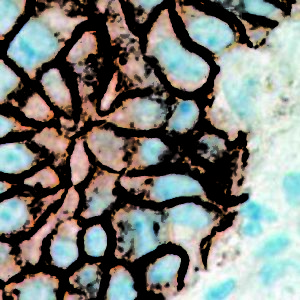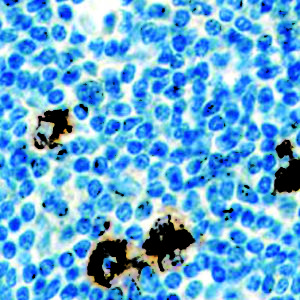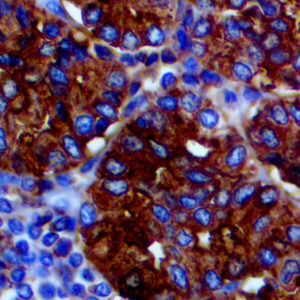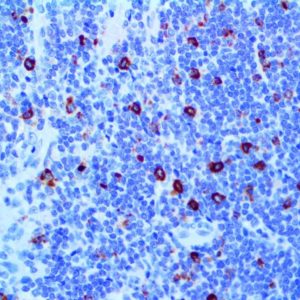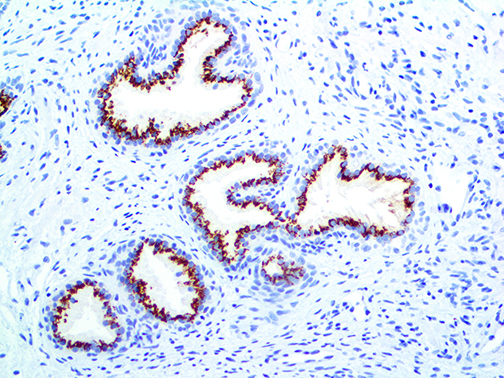
IHC of Prostein on an FFPE Prostate Tissue
| Intended Use | For In Vitro Diagnostic Use | |||||||||||||||||||||||||||||||||||
| Summary and Explanation | Prostein/ P501S also known as Solute Carrier Family 45 member 3 (SLC45A3) and prostate cancer-associated protein 6, is a protein that in humans is encoded by the SLC45A3 gene. Prostein is expressed in prostate-specific normal tissues and at a significantly lower level in prostate tumor cell lines, but not in any other normal or malignant tissue examined to date. Prostein is considered to be a good marker to demonstrate prostatic origin in metastatic prostate cancer. Prostatic origin has been traditionally confirmed in most cases by immunohistochemistry for prostate-specific antigen (PSA) and prostate-specific acid phosphatase (PSAP). In a small subset of high-grade prostate carcinomas, both markers are negative and therefore are not helpful for confirming prostatic origin. Prostein/P501S stain yields a perinuclear cytoplasmic (Golgi) distribution even in poorly differentiated tumors and metastases. In one study, two distant metastases were negative for PSA but retained focal weak positivity for Prostein/P501S. Two other distant metastases were weakly PSA positive, but strongly Prostein positive. Metastases in the pelvic lymph nodes were positive for both markers in 53 cases and 1 lymph node metastasis. In summary, 67 of the 69 cases (97%) of metastatic prostate carcinomas were PSA positive, whereas 68 of the 69 cases showed at least focal weak reactivity for Prostein (99%). None of the tumors were negative for both markers. Therefore, the Immunohistochemistry for P501S is a sensitive and highly specific marker for identifying prostate metastases. The large majority of metastatic prostatic adenocarcinomas are Prostein/P501S positive (99%). A small subset of metastatic prostatic adenocarcinoma shows significant differences in staining intensity and extent for PSA and Prostein/P501S and, therefore, the combined use of these markers may result in increased sensitivity for detecting prostatic origin. | |||||||||||||||||||||||||||||||||||
| Antibody Type | Rabbit Monoclonal | Clone | ZR-9 | |||||||||||||||||||||||||||||||||
| Isotype | IgG | Reactivity | Paraffin, Frozen | |||||||||||||||||||||||||||||||||
| Localization | Cytoplasmic | Control | Prostate, Prostatic Adenocarcinoma | |||||||||||||||||||||||||||||||||
| Presentation | Prostein / P501S is a rabbit monoclonal antibody derived from cell culture supernatant that is concentrated, dialyzed, filter sterilized and diluted in buffer pH 7.5, containing BSA and sodium azide as a preservative. | |||||||||||||||||||||||||||||||||||
| Availability |
| |||||||||||||||||||||||||||||||||||
| Note: For concentrated antibodies, please centrifuge prior to use to ensure recovery of all product. | ||||||||||||||||||||||||||||||||||||
